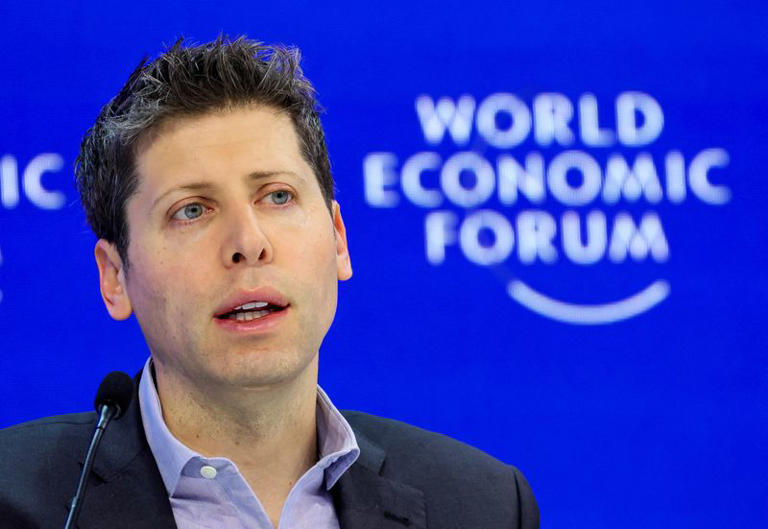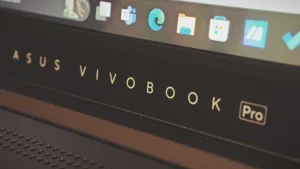| Key Point | Summary |
|---|---|
| Reason for Change | Potential conflict of interest due to Sam Altman’s dual CEO roles at OpenAI and Anthropic |
| New Management | Independent board established to oversee startup fund |
| Overall Impact | Ensures transparency and ethical allocation of investment capital |
OpenAI Cuts Ties with Co-founder Sam Altman to Address Conflict of Interest Concerns
OpenAI, a trailblazing artificial intelligence (AI) research outfit, has undertaken a significant shift to mitigate potential conflicts of interest. The company has severed ties between its startup fund and co-founder Sam Altman, effectively removing his control over investments in other budding AI ventures.
This move comes amidst Altman’s dual leadership positions. He serves as CEO of both OpenAI and Anthropic, another AI startup. The concern was that Altman’s dual role could lead to unfair advantages for Anthropic when allocating funds from OpenAI’s startup fund.
Ensuring Impartiality in AI Investment: The Rationale Behind OpenAI’s Decision
OpenAI’s decision to separate Altman from the startup fund prioritizes transparency and fairness within the AI development landscape. Here’s a deeper dive into the reasoning behind this move:
Mitigating Bias in Funding Decisions
Altman’s involvement in both OpenAI and Anthropic raised concerns about potential bias in how the startup fund was managed. There was a possibility that Altman might favour Anthropic when allocating investments, hindering a level playing field for other promising AI ventures.
By removing Altman from the equation, OpenAI fosters a more impartial environment where funding decisions are based solely on merit and alignment with the company’s mission. This fosters a more equitable ecosystem for AI innovation.
Upholding Ethical Principles in AI Development
OpenAI’s commitment to responsible AI development extends beyond its research endeavours. By addressing potential conflicts of interest head-on, the company sets a strong precedent for ethical practices within the AI industry.
This move demonstrates OpenAI’s dedication to transparency and accountability in its investment strategies. It assures stakeholders that funding decisions are made with the greater good of the AI landscape in mind.
OpenAI Charts a New Course: The Independent Board Takes the Helm
OpenAI has established an independent board to steer the course of its startup fund moving forward. This board will be responsible for the following:
- Investment Oversight: The board will meticulously evaluate potential investment opportunities within the AI domain. They will assess each venture’s alignment with OpenAI’s mission and growth trajectory.
- Strategic Decision-Making: The board will determine the overall investment strategy for the fund. This includes defining target investment amounts, risk tolerance levels, and desired industry focus areas.
- Ensuring Transparency: The board will maintain open communication channels with stakeholders regarding investment decisions and the fund’s performance. This fosters trust and accountability.
The composition of the independent board is yet to be disclosed. However, it’s expected to comprise individuals with extensive experience in venture capitalism, technology leadership, and potentially, the field of AI itself.
The Road Ahead: What Does This Mean for OpenAI and the Future of AI Development?
OpenAI’s decision to sever ties between Altman and the startup fund signifies a commitment to fostering a more equitable and transparent environment for AI innovation. Here’s a glimpse into what this might entail:
- A Broader Investment Landscape: With an independent board at the helm, the startup fund is likely to explore a wider range of AI investment opportunities. This could lead to increased funding for diverse and promising ventures across various AI subfields.
- Focus on Mission Alignment: The independent board’s oversight will ensure that investments align with OpenAI’s core mission. This could involve prioritizing ventures that contribute to responsible and beneficial development of AI technology.
- A More Level Playing Field: By removing potential bias from the investment process, OpenAI creates a fairer landscape for all AI startups seeking funding. This fosters a more competitive and dynamic environment that can accelerate breakthroughs in the field.
While the long-term ramifications of this move remain to be seen, it has undoubtedly generated a positive buzz within the AI community. OpenAI’s commitment to ethical practices sets a commendable example for other organizations involved in AI development.
The Future of AI Investment: Transparency, Fairness, and Collaboration
The evolving landscape of AI investment demands a focus on transparency, fairness, and collaboration. Here are some additional thoughts to consider:
- The Role of Regulatory Bodies: Regulatory bodies can play a crucial role in establishing ethical guidelines for AI investment practices. This can help mitigate potential biases and ensure responsible allocation of capital within the field.
- The Importance of Collaboration: Collaboration between research institutions, startups, and established corporations is vital for responsible AI development. Open dialogue and knowledge sharing between these stakeholders can help to identify and address potential risks and ethical concerns early on in the development process. This can help to ensure that AI is developed in a way that is beneficial to society as a whole.
Here’s a table outlining the potential benefits of collaboration in AI development:
| Stakeholder | Contribution | Benefits |
|---|---|---|
| Research Institutions | Fundamental research, ethical considerations | Long-term vision, identification of potential risks |
| Startups | Innovation, agility | Fresh perspectives, rapid development cycles |
| Established Corporations | Resources, infrastructure | Scalability, real-world application expertise |
By fostering a collaborative environment, stakeholders can leverage their unique strengths to ensure the responsible and ethical development of AI. This collaborative approach can lead to the following:
- Mitigating Risks: Open dialogue between stakeholders can help identify and address potential risks associated with AI development, such as bias, privacy concerns, and job displacement. Early discussions can lead to proactive measures to mitigate these risks.
- Accelerating Innovation: Collaboration between research institutions, startups, and established corporations can accelerate the pace of AI innovation. By sharing knowledge and resources, stakeholders can collectively push the boundaries of what’s possible in the field.
- Developing Beneficial AI Applications: A collaborative approach can help ensure that AI is developed and deployed in ways that benefit society. By working together, stakeholders can align their efforts towards creating AI solutions that address real-world challenges and improve people’s lives.
Conclusion: Towards a Brighter Future with Responsible AI Development
OpenAI’s decision to address potential conflicts of interest exemplifies the growing focus on ethical considerations within the AI development landscape. By prioritizing transparency and fairness in its investment practices, OpenAI sets a positive precedent for the industry.
Looking ahead, fostering collaboration between research institutions, startups, and established corporations is paramount for ensuring the responsible development and deployment of AI. Through open dialogue, knowledge sharing, and a shared commitment to ethical principles, stakeholders can work together to harness the immense potential of AI for the betterment of humanity.







